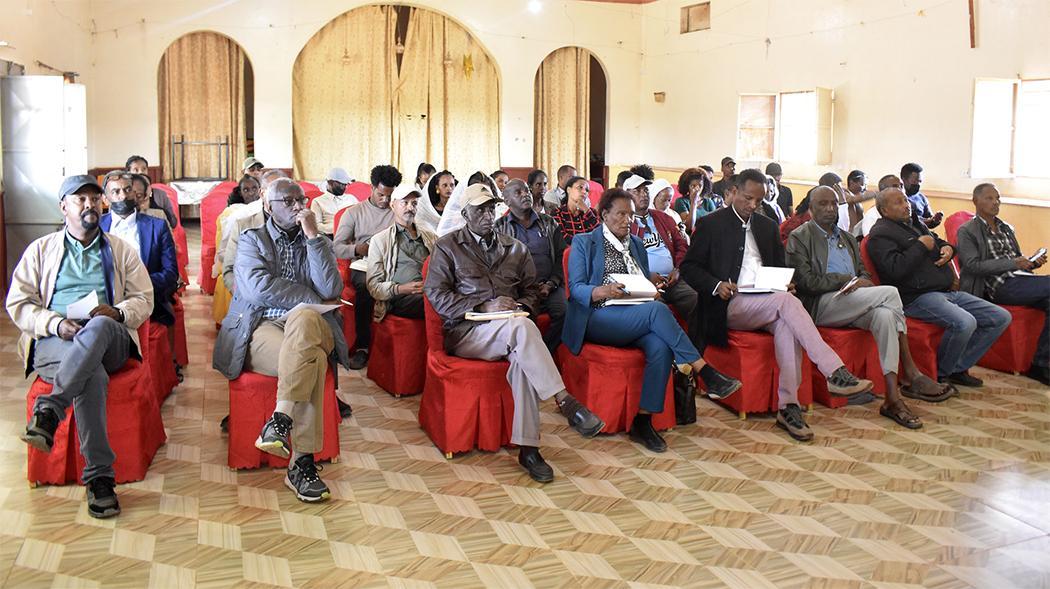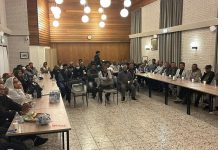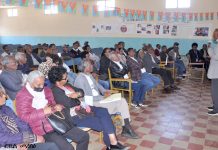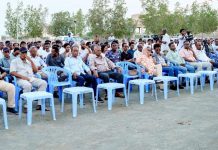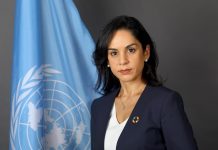Africa-Press – Eritrea. While much attention in the past few days has rightly been drawn to commemorating the immensely significant victory in Operation Fenkil at Massawa from several decades ago, recent local news coverage has also reported on a number of other positive developments in the country.
Days ago, the Central Region administration and National Athletics Federation convened a special event to honor dozens of athletes, coaches, and clubs for their exploits and achievements in 2023, while the National Confederation of Eritrean Workers, a notable institution with decades of significant experience and history, gathered for its fifth Central Committee meeting.
Another important bit of local news came from Mendefera, where the Micro-Credit and Savings Program branch in the Southern Region held its annual assessment meeting. Notably, during the gathering it was reported that approximately 25.76 million Nakfa was loaned to various recipients across the region last year, representing an increase of around 12 percent from the previous year. Moreover, the number of people receiving loans was 9,431, slightly up from 9,111 in 2022, while the number of village banks offering micro-credit services increased from 138 to 149 across the same period.
In addition to being a positive and encouraging reflection of developments in the region, the news about the success of the Micro-Credit and Savings Program branch in the Southern Region provides a useful opportunity to review the wider history and context of Eritrea’s national program, as well as highlight the country’s larger commitment to social justice, equality, and inclusion.
A life-changing program
Eritrea’s Micro-Credit and Savings Program dates back to July 1996, when it was established under the watch and guidance of the Ministry of National Development. (After restructuring, the latter is now the Ministry of Finance and National Development.) Its work began through the provision of services to just over 1,500 clients, and it extended approximately 1.3 billion Birr in loans to local citizens.
In the years since its establishment, the Micro-Credit and Savings Program has extended a total of around 4 billion Nakfa in loans, with about one million locals from across the country being recipients. At present, there are over 70,000 clients of micro-credit banks nationwide, with women making up slightly over half of the total client body. Additionally, the number of micro-credit village banks has steadily risen, now standing at about 750, with service provision extending to cover about three-quarters of all administrative areas in the country and nearly 70 percent of the nation’s villages.
The Micro-Credit and Savings Program offers a variety of flexible options for those wishing to secure loans, with a range of repayment and interest rate options. Of note, overall rates of repayment are relatively high, while public awareness and general understanding about micro-credit and the national program are quite strong and continue to grow.
Most importantly, since its inception, the Micro-Credit and Savings Program has had a profoundly positive impact on individuals, communities, and national development. Briefly, it has helped to increase financial inclusion to all segments of the population, supported the establishment of numerous small business and income-generating opportunities, promoted agency, autonomy, and gender equality, and played a critical role in the positive transformation of lives and communities.
A longstanding and enduring commitment to social justice, equality, and inclusion
In many ways, the Micro-Credit and Savings Program is another great reflection of Eritrea’s wider and enduring commitment to social justice, equality, and inclusion.
To recap, the country’s development and nation-building processes are firmly grounded on the principles of equality and social justice, and it places an unwavering emphasis on ensuring that all Eritreans, regardless of any particular distinction or characteristic, can freely and fully participate in, contribute to, and benefit from the achievement of sustainable development.
In particular, the country’s laws, regulations, and policies, which are underpinned by strong and long-standing socio-cultural values, establish a platform for inclusive socio-political and economic development, while guaranteeing and promoting a wide range of basic and fundamental rights. Discrimination, exclusion, restriction, or preference that is based on the grounds of disability, ethnicity, color, religion, socio-economic status, language, opinion, gender, or other similar distinctions are strongly prohibited and punishable by national law.
Since attaining its independence in 1991, Eritrea has also crafted a broad spectrum of policies and adopted a variety of legal instruments to help address the specific needs of and catalyze progress for vulnerable groups, such as the poor, women, children, persons living with disabilities, nomadic populations, and those residing in extremely remote or hard-to-reach areas. These interventions play a critical role in cultivating peace and unity within Eritrea’s multi-ethnic, multicultural society, aim to mitigate disparities and create a level playing field on which all Eritreans have a genuine opportunity to excel, and seek to ensure that each and every individual is empowered and able to enjoy the fruits of inclusive economic growth and social progress.
Eritrea’s deep commitment to the principle of social justice was articulated some years ago by President Isaias Afwerki, where he declared that, “Our development strategy is anchored on giving priority to deprived regions and segments of the population.
The strategy strives to ensure fairness and equity through structured governance configurations, as well as a social contract that promotes equal opportunities and a level playing field for all stakeholders. Our central objective, and for which we have paid precious sacrifices in a long struggle, is indeed to secure and enhance effective participation of the population within the fair framework described above and which is vital for political stability, national cohesion, economic and social development, social justice, and cultural progress.”
Source: Eritrea Ministry Of Information
For More News And Analysis About Eritrea Follow Africa-Press


